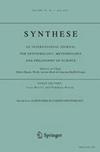拒绝扩展认知的道德叙事:对扩展认知的两个规范性论点的批判
IF 1.3
1区 哲学
Q1 HISTORY & PHILOSOPHY OF SCIENCE
引用次数: 0
摘要
鉴于“嵌入式”(EMB)和“扩展”(EXT)认知之间的解释僵局,许多作者提出了支持EXT的规范和道德论点。根据我们所谓的“扩展认知道德叙事”(EXT- mn) (Cassinadri, 2022),我们应该接受EXT而摒弃EMB,因为前者会导致相对于后者的道德上更可取的结果。在本文中,我们认为EXT道德叙事的两个论点是有缺陷的。在2.1节和2.2节中,我们分别介绍了King(2016)和Vold(2018)的“能力评估论证”(AAC)和Clowes (2013), Farina和Lavazza (2022a)的“认知削弱论证”(CDA)。AAC指出,我们应该接受EXT而不是EMB,因为前者更善于将认知信用归因于使用辅助工具完成学习任务的学习障碍个体,从而避免他们被边缘化。CDA指出,EMB在认知能力减弱方面暗示了一种道德上不受欢迎的行为。在第3节中,我们澄清并批评了AAC和CDA的基本假设:“认知信用假设”、“边缘化假设”,以及更普遍的残疾代理的能力主义概念。在3.1节中,我们讨论了运动知觉技能和元认知信用在复杂的工具使用案例中的作用,以证明EXT-MN在解决这些案例中是没有信息的。综上所述,在第4节中,我们认为AAC和CDA未能将EXT描述和规范地呈现为优于EMB。本文章由计算机程序翻译,如有差异,请以英文原文为准。
Rejecting the extended cognition moral narrative: a critique of two normative arguments for extended cognition
Abstract Given the explanatory stalemate between ‘embedded’ (EMB) and ‘extended’ (EXT) cognition, various authors have proposed normative and moral arguments in favour of EXT. According to what we call the “extended cognition moral narrative” (EXT-MN) (Cassinadri, 2022), we should embrace EXT and dismiss EMB, because the former leads to morally preferable consequences with respect to the latter. In this article we argue that two arguments following the EXT moral narrative are flawed. In Sect. 2.1 and 2.2, we present respectively King (2016) and Vold’s (2018) ‘argument from assessment of capacities’ (AAC) and Clowes (2013), Farina and Lavazza’s (2022a) ‘cognitive diminishment argument’ (CDA). The AAC states that we should embrace EXT over EMB since the former is better at attributing cognitive credit to individuals with learning disabilities who use assistive tools to complete their learning tasks, thus avoiding their marginalisation. The CDA states that EMB implies a morally undesirable picture of the agent in terms of cognitive diminishment. In Sect. 3, we clarify and criticise the underlying assumptions of the AAC and CDA: the “cognitive credit assumption”, the “marginalisation assumption” and, more generally, an ableist conception of disabled agency. In Sect. 3.1, we discuss the role of moto-perceptual skills and metacognitive credit involved in complex cases of tool-use, to demonstrate that the EXT-MN is uninformative in addressing these cases. To conclude, in Sect. 4 we argue that AAC and CDA fail to present EXT as descriptively and normatively superior to EMB.
求助全文
通过发布文献求助,成功后即可免费获取论文全文。
去求助
来源期刊

Synthese
管理科学-科学史与科学哲学
CiteScore
3.30
自引率
13.30%
发文量
471
审稿时长
1 months
期刊介绍:
Synthese is a philosophy journal focusing on contemporary issues in epistemology, philosophy of science, and related fields. More specifically, we divide our areas of interest into four groups: (1) epistemology, methodology, and philosophy of science, all broadly understood. (2) The foundations of logic and mathematics, where ‘logic’, ‘mathematics’, and ‘foundations’ are all broadly understood. (3) Formal methods in philosophy, including methods connecting philosophy to other academic fields. (4) Issues in ethics and the history and sociology of logic, mathematics, and science that contribute to the contemporary studies Synthese focuses on, as described in (1)-(3) above.
 求助内容:
求助内容: 应助结果提醒方式:
应助结果提醒方式:


